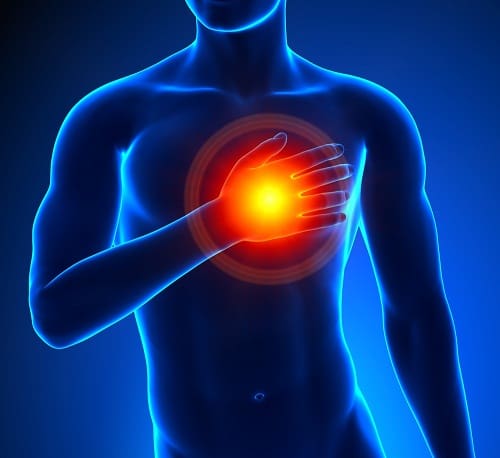
Over the past few years there have been 2 studies (Vigen et al, Finkle et al) that suggested an association of testosterone use with heart attacks. It was sensationalized in the media, despite the finding by several other researchers that it does not cause heart attacks and in some cases it may even protect from heart attacks (Baillargeon et al, Corona et al, Tan et el etc.)
To be safe, we not only carefully screen and treat patients with hypogonadism, but carefully and closely monitor them, watching and modifying cardiac risk factors. If patients are given testosterone medications, compliance must be ensured. Our patients are screened & meet criteria for treatment, before they are started on treatment. The treatment may sometimes be observation, testosterone products or non-testosterone products (clomiphene, HCG, anastrazole etc.)
Patients must be followed on a protocol requiring regular, repeat clinic visits. A system must be set up for reminders for blood tests and regular follow up. Refills should only be authorized after review of the patient. This strategy accounted for the positive outcomes in our experience. In addition, guidelines on treatment of hypogonadism (Endocrine Society, AACE, ISSAM etc) should be closely followed. It is important to ensure patients reach therapeutic levels and monitor not only PSA and prostate but the hematocrit.
We have noticed that higher mean level of total testosterone was associated with low numbers of heart attacks and stroke in testosterone treated patients. Other co-morbid risk factors such as diabetes, hyperlipidemia and hypertension have to be also controlled. Patients should be also given lifestyle change education. The flood of media advertisement may have pushed many patients into taking testosterone, but practitioners should not be reticent to deny treatment if patients do not qualify or have contraindications. It is important to spend time educating patients and telling them the benefits and risks. As no drug is completely safe for everyone, and it is up to the practitioner to decide based on the understanding of risks/benefits by the patient and with informed consent.
Although the results of many studies are promising, it is still not known if testosterone is safe for the heart or if it can cause MI or stroke. Care must be individualized or customized. A large randomized, controlled study powered in the tens of thousands will be needed. To compare, the Women’s Health Initiative had 161,800 patients, studied in a prospective manner.
The treatment of low testosterone patients, particularly in the context of younger healthy men, does not lead to an increase of MI or stroke. If you have concerns or questions about this and other aspects of testosterone please contact us for testosterone treatment in Houston.

